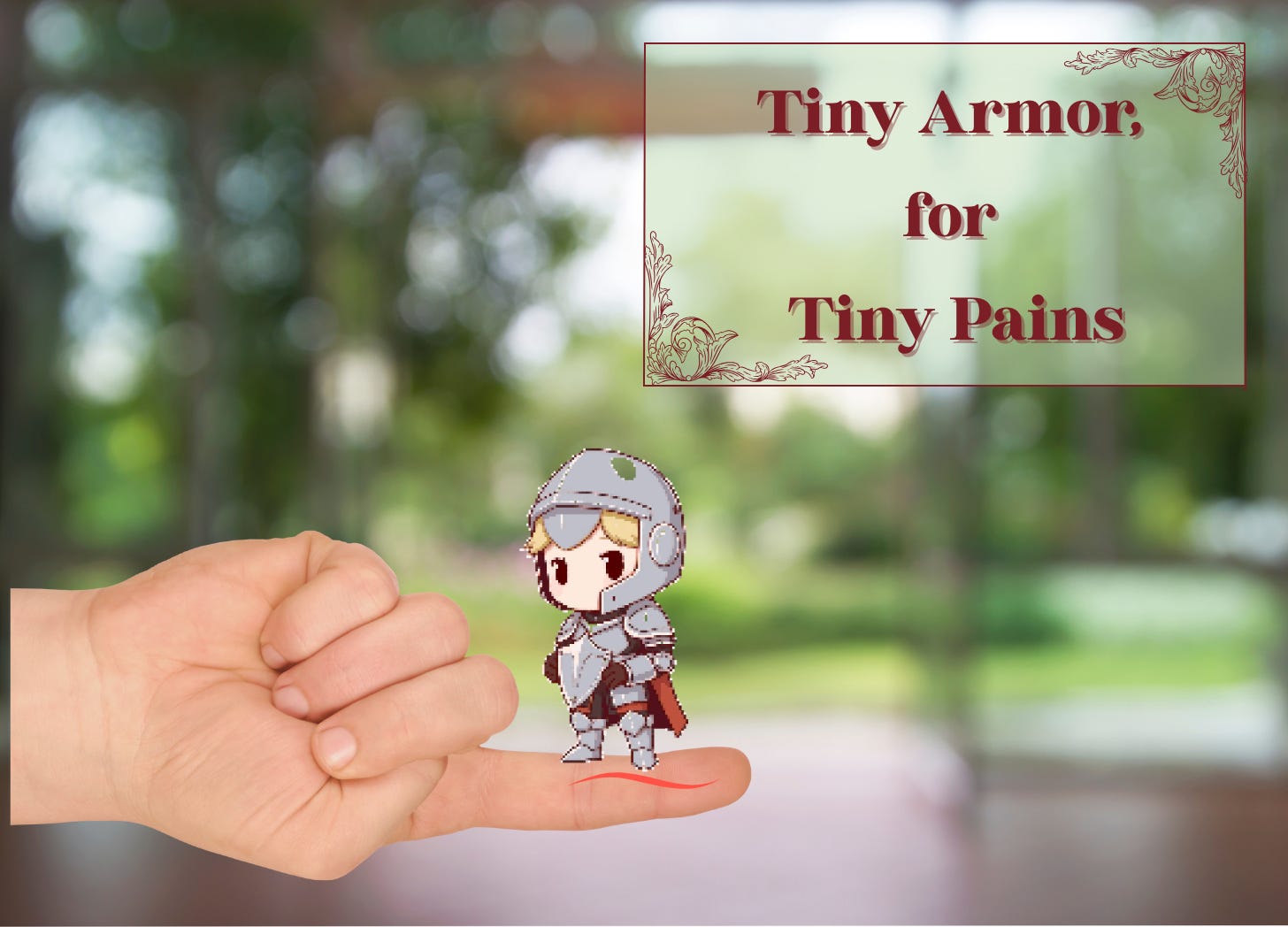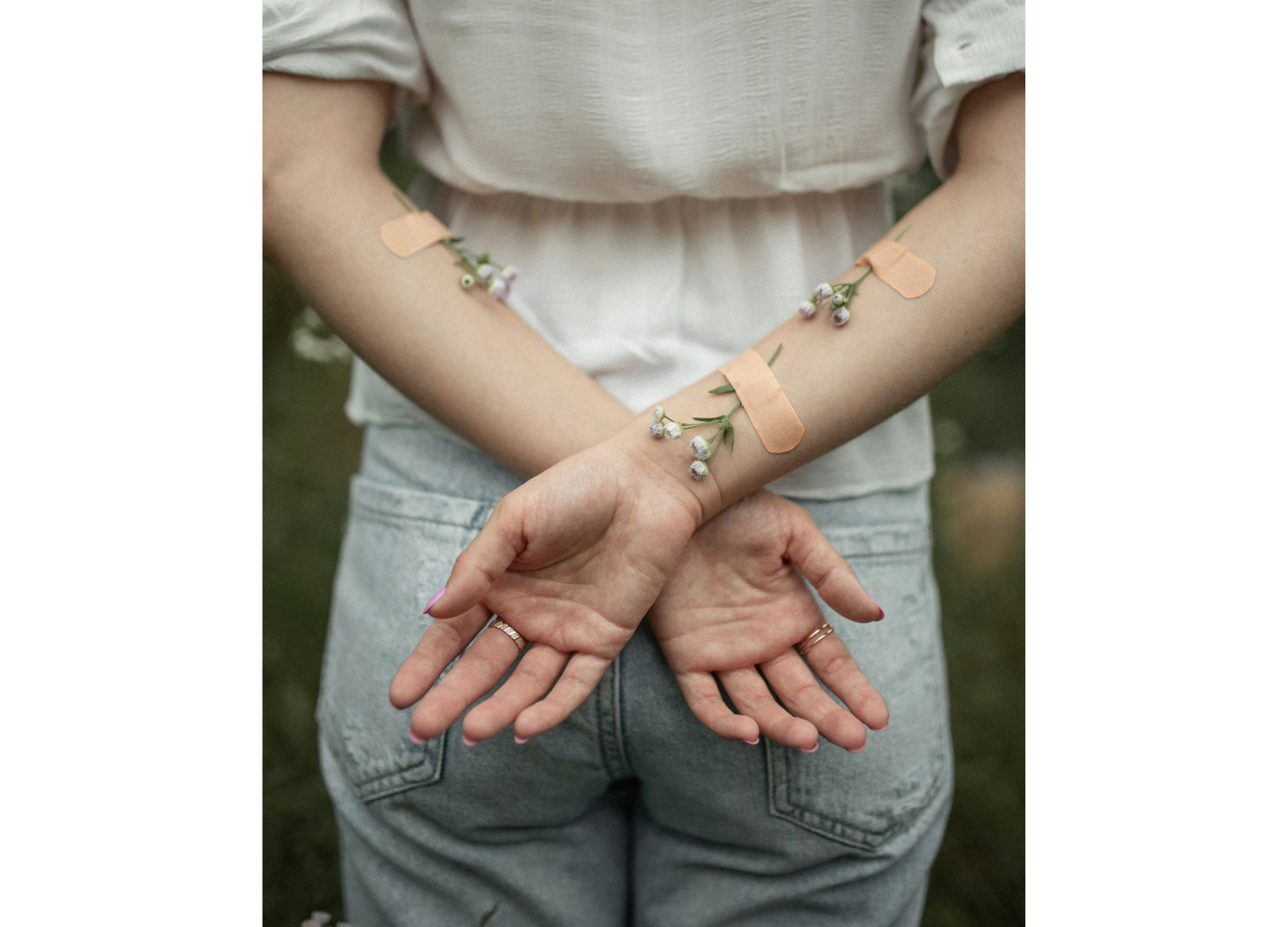The Pains That Cut Deep
paper cuts, eye-rolls, and the hidden wounds that break us
Sometimes I wish I had a tiny little armor for the tiny pains of life. Like an eyelash in the eye, a paper cut on my finger, or a blister on my foot. Those tiny little things that shouldn't debilitate me, but keep me from being able to think about anything else until they’re fixed. That's the kind of antlike amor I wish I had.
Sure, full body armor is necessary for the flaming darts and arrows of the enemy, but sometimes the enemy doesn't have to try that hard. And by enemy, I don't mean the devil; I mean the people in my life who should make me happy, but are the best at hurting my feelings.
It’s hard to deny the relationship that exists between intimacy and hostility. Love and hostility share more than a border; sometimes they share the same roof.
In fact, one could make the argument that love is specifically made for difficult relationships. After all, you don’t need the Spirit’s help to be patient with someone who never bothers you. But the fruit-of-the-Spirit love shines in the presence of irritation. When someone cuts you off mid-sentence, when their habits grate, when their selfishness wears you thin. That’s when love shoulders the weight. Not in a mood you conjure, but in the heaviness of irritation and frustration that the Spirit allows you to bear.
The way 1 Corinthians 13 gets quoted at weddings, you’d think Paul wrote it for a candlelit dinner with a string quartet. But he was writing to a church tearing itself apart — jealousy, pride, arguments, lawsuits, divisions. This kind of love wasn’t meant for dream dates or a lap full of puppies. It was meant for irritating people who get under your skin.
That’s why love produces patience in us. For the people who can grate on us the most. It’s kind. Because meanness is the easier reflex, especially when your guard is down in the comfort of your own home. Love doesn’t roll its eyes, doesn’t keep score, doesn’t feed on injustice, even when giving them a taste of their own meaness feels delicious.
Love holds on. It keeps believing. It keeps forgiving and hoping. It keeps standing, even when the people it’s standing with make you wish you’d made different choices in life.
Yes, sometimes the enemy of love isn’t the devil, it’s us in relationship to the people we love the most. In fact, in those relationships, I’m starting to realize that I’m not always the one under attack either. Sometimes I’m the reason someone else needs the armor of God and the fruit of the Spirit in their lives. Not because I meant to hurt them—but because I was short, distracted, cold, or impatient. Maybe my words had fangs. Or my silence cut to the heart.
Sometimes the prowling lion is me. Not their comforter, or friend, but the reason they hold their armor so tight. The people we love most are often the people we wound most.
Many a relationship has ended in this nursery of love—this greenhouse where love is supposed to be trained and tempered: in disgust, in misunderstanding, and in hurt feelings. We declare the ground irreconcilable, scorched and unyielding, and leave what was planted to wither, as if love were just a wildflower to be picked instead of a vineyard to be worked.
So, what is the answer to our love/hate relationship with love? It isn’t to find a way around the strife, but to admit it’s baked into every human relationship, especially our closest ones, and then to decide what to do with that information.
It’s the work of love to fix the very things that irritate us, that make us impatient, frustrated, and angry. And I’m not talking about the kind of love you fall into; I’m talking about the kind the Spirit has to plant in you. Because in the vernacular of 1 Peter 4:8, it’s love’s job to cover a multitude of sins. Did you get it? That thing that love does?
It covers a multitude of sins. Proverbs 10:12 calls them offenses. Love doesn’t deny the hurt; it acknowledges it. But instead of leaving the wound exposed, love offers covering, giving us the capacity to forgive and move forward.
Hatred stirs up strife, but love covers all offenses.—Pr 10:12
Peter and the book of Proverbs both use the word cover—not erase, not deny, not punish, not perfect. But cover. Which is humbling, because it means the offense is real. It happened. The cut exists. And cuts, even little ones, need care. Love doesn’t pretend the scratch isn’t there; it cleans the sting with grace and then lays a covering over it—not to ignore it, but to protect it so it can heal.
So maybe the goal isn’t to get rid of the paper cuts, or to finally live in a world where no one scratches or chafes us. Maybe the goal is to become the kind of person who keeps grace and love close at hand, ready to tend the wound and guard it until it closes. Armor for the body, yes. But for the tiny pains? Only love knows how to heal those.





What a beautiful post on love. I so relate to struggling with the "little cuts," the ongoing irritants and how love "covers over a multiple of sins," like a healing salve.